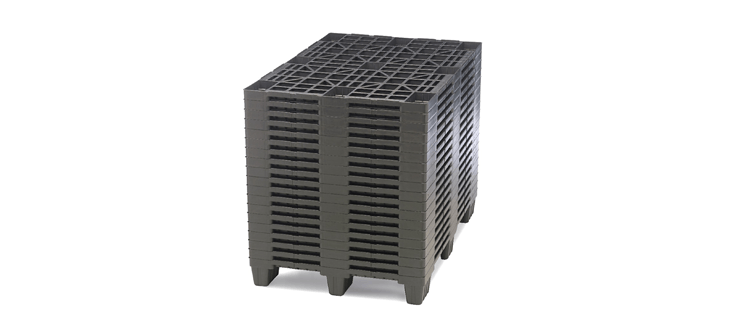The choice of a suitable pallet for the transport of any given merchandise along its distribution chain is a task that may seem a priori simple, but requires a thorough analysis if it is intended to obtain efficiencies that help to improve the set of logistical operations of an entire value chain. In decision-making, different departments are involved: procurement, production, logistics, etc ... who need to pool their needs in order to select that pallet that allows them to optimize logistical costs at the best cost, and therefore create value.
Over the last few years, logistics has become increasingly important, has become professionalized and has become one of the most important departments of companies operating in a global, dynamic and increasingly competitive environment. This has greatly contributed to the fact that the pallet is no longer considered as a mere "commodity" and has become an element of great importance for the optimization of logistics costs.
The vast majority of the production lines end up in palletizing of the goods produced, where they are placed on top of a pallet that will transport them from the production centres to the points of sale. This makes the pallet the central element of all logistic activity, and hence its enormous importance. In addition, the pallet interacts with all stakeholders, and at all stages of the supply chain, making it an element with the ability to introduce efficiencies along the entire value chain.
The correct choice of the pallet allows, among other things: improving the environmental impact by reducing CO2 emissions, reducing the consumption of fossil fuels in logistics activities, improving the handling and transport of merchandise, increase safety in operations, reduce bureaucratic procedures In the export activities, improve the hygiene of production centers as well as in the points of sale, increase the quantity of product transported per load unit, improve product replacement time, optimize storage space, improve transport costs, improve the image of both the product and the different centres, etc. ...
The Spanish company Nortpalet, dedicated to the design, development and manufacture of reusable transport elements (ERT), has specialized in the analysis of logistics circuits, where working side by side with several companies from different sectors, it has contributed to obtaining logistics efficiencies through the use of plastic pallets that help in the continuous improvement of the logistic operations of the entire value chain of a particular consumer good.
At present, Nortpalet has a unique know-how on the implementation of plastic palletizing projects in sectors such as commercial distribution, food, textiles, beverages, meat, pharmaceutical, pooling, etc. built on the experience acquired in the large number of projects in which it participates, understanding the needs of different actors in different sectors, analyzing them in depth, and designing and developing new products whose main mission is to adapt to these needs by collaborating in the Improvement of all logistic activities.
















